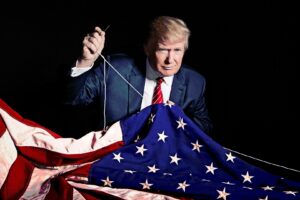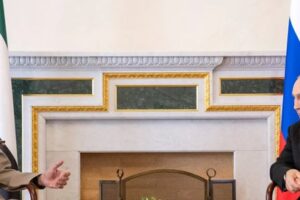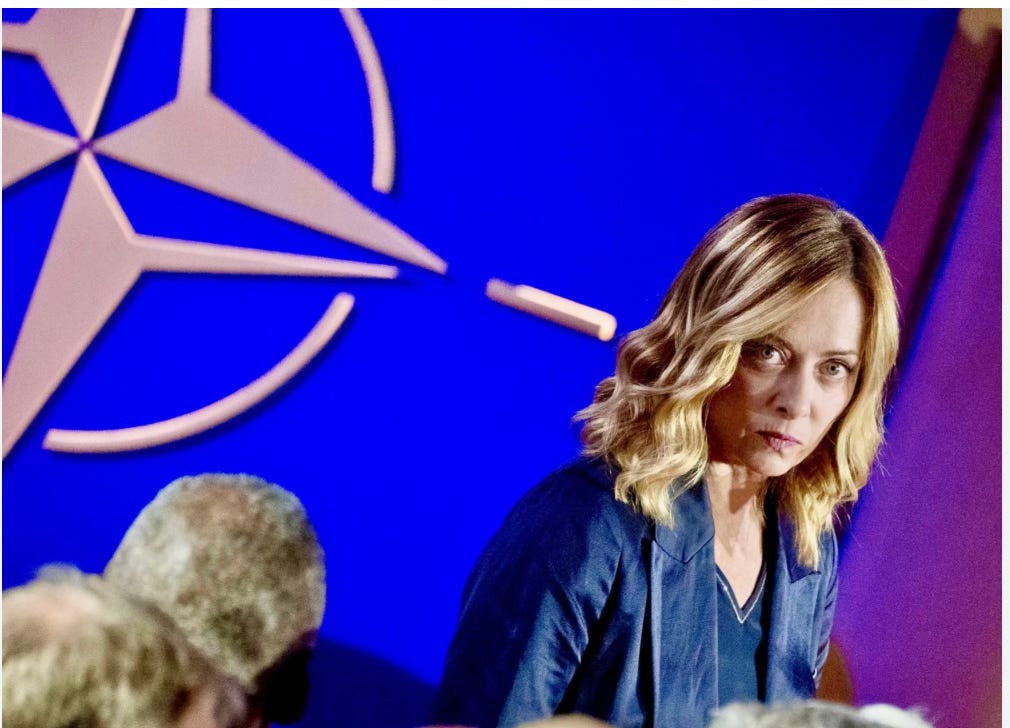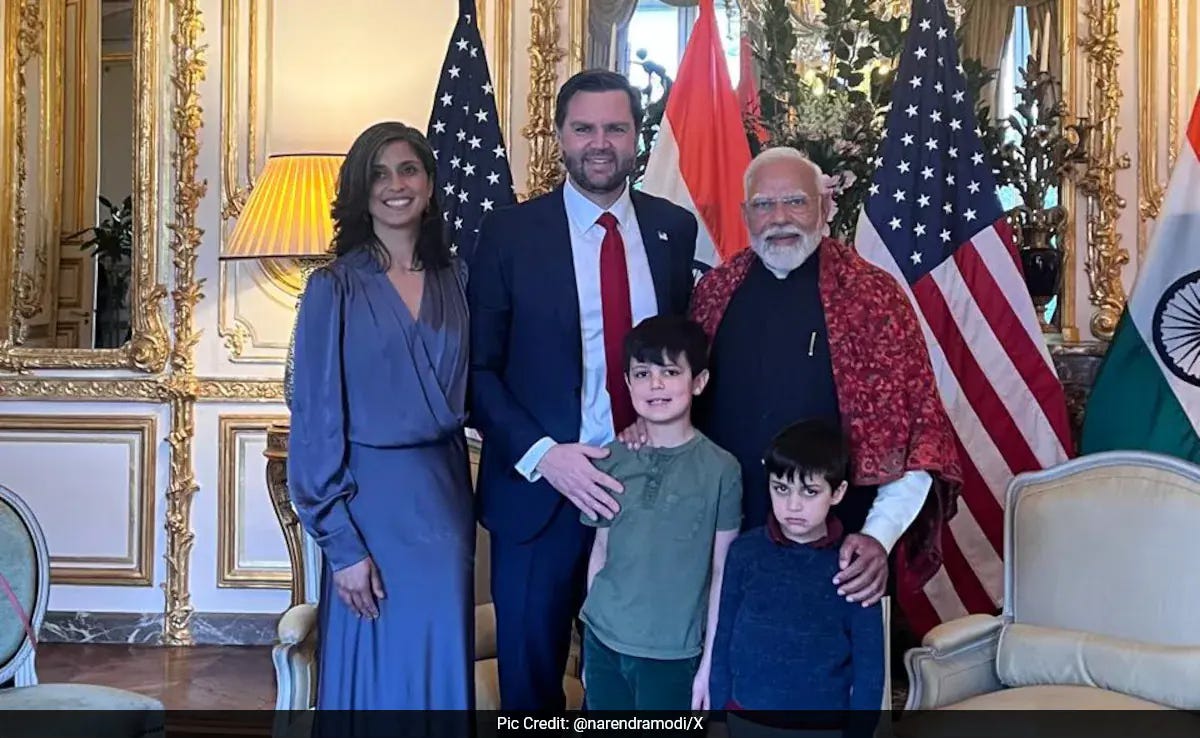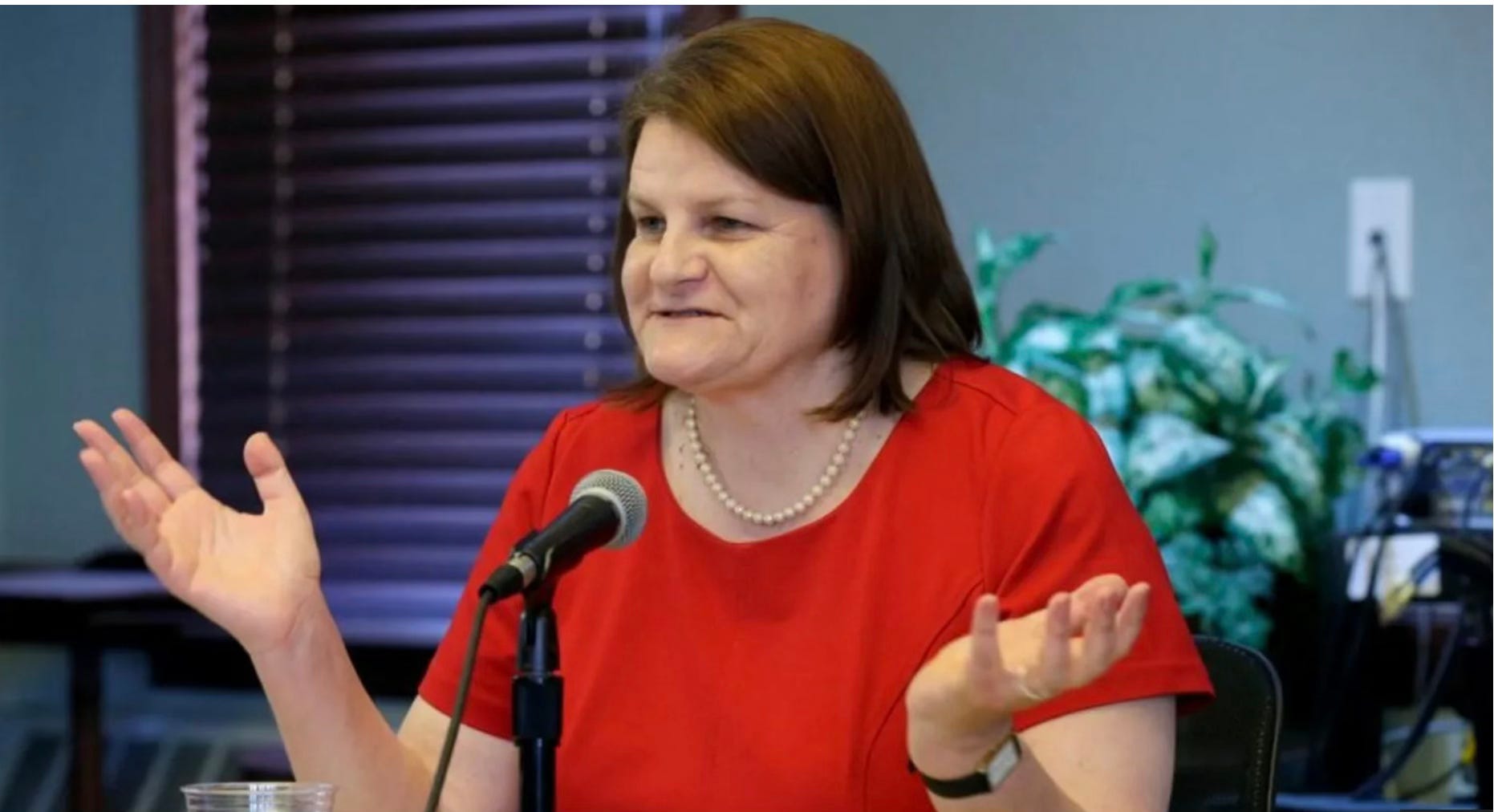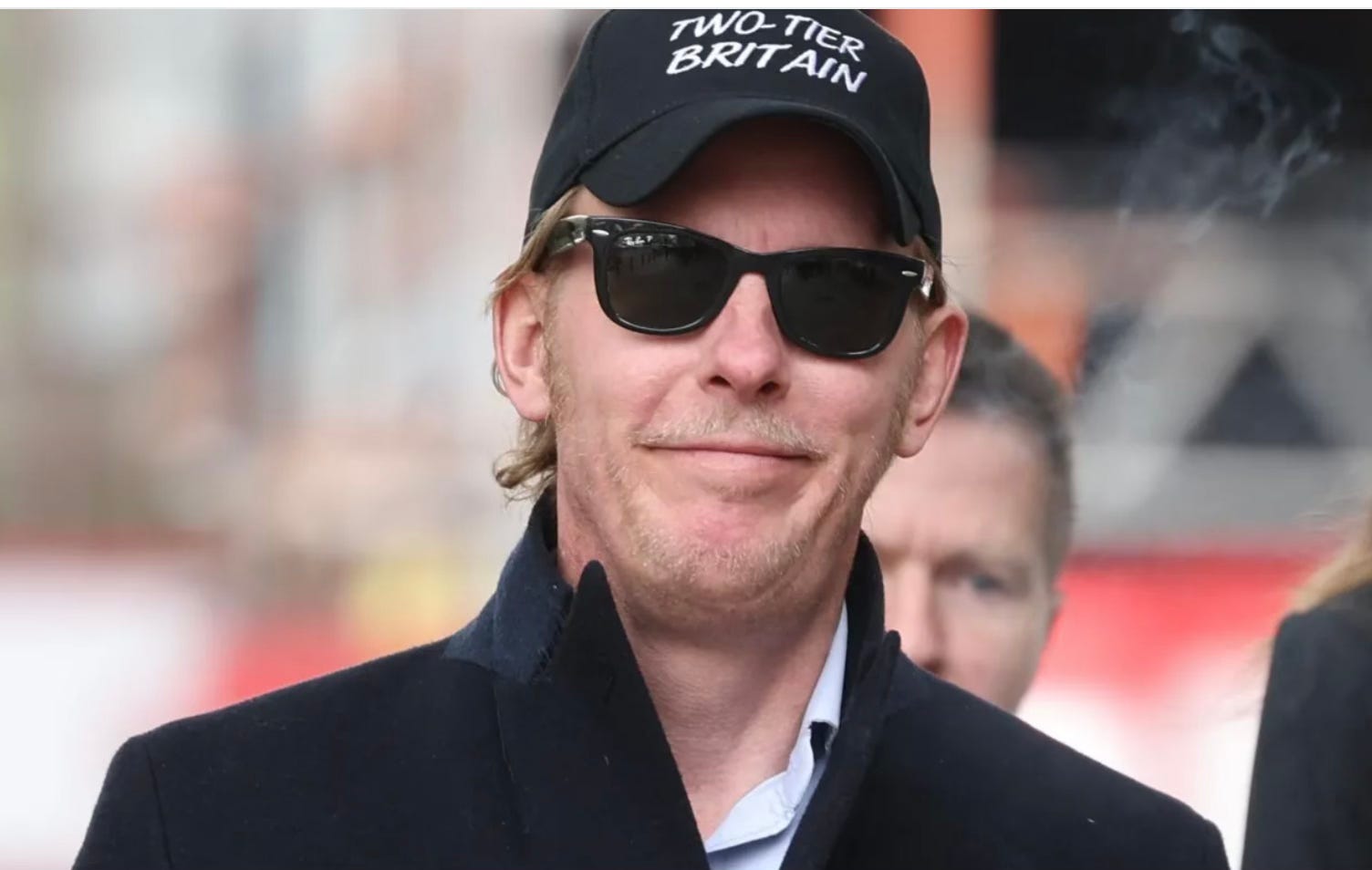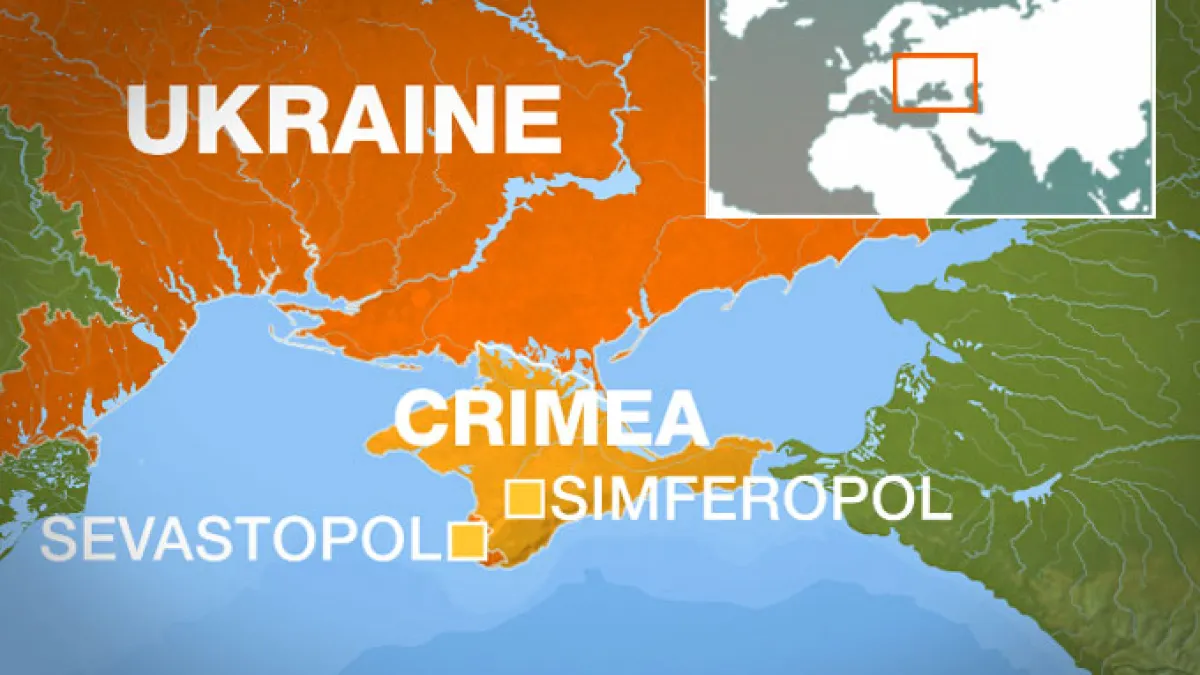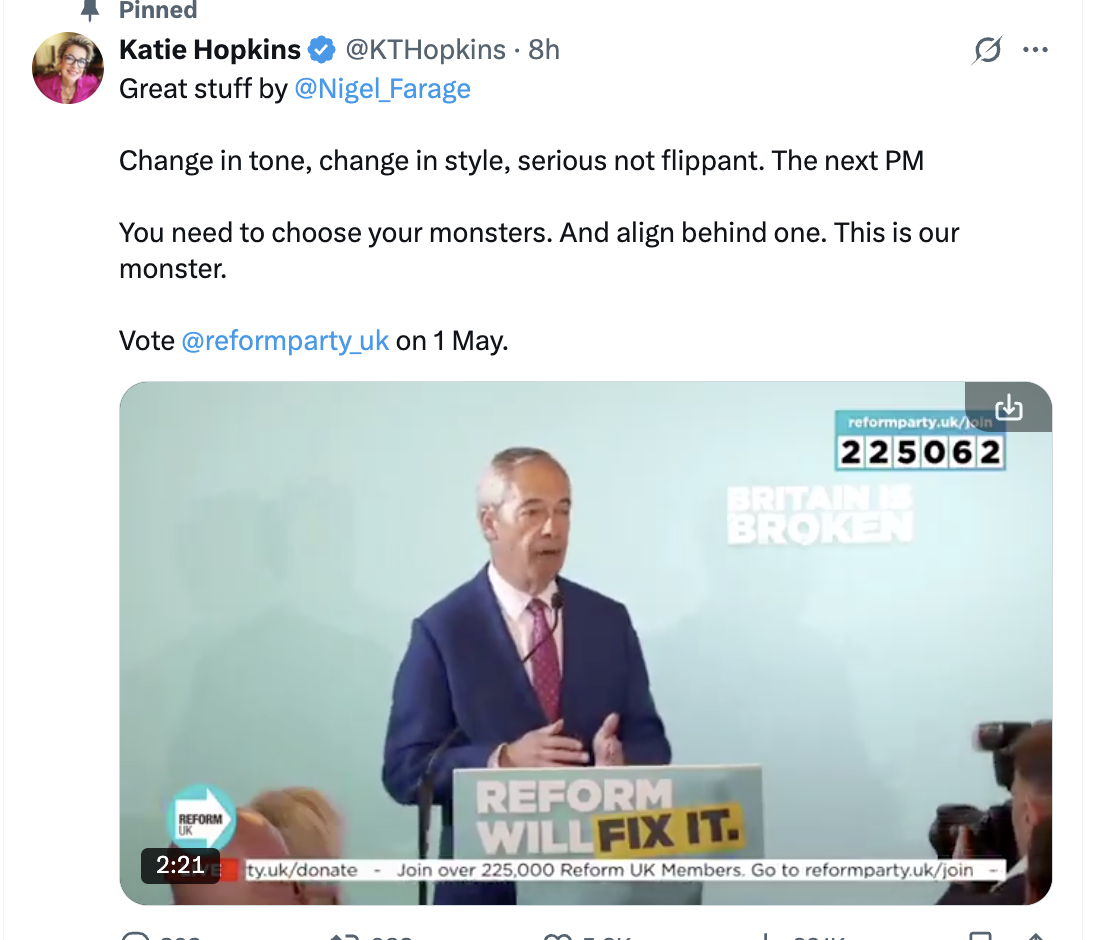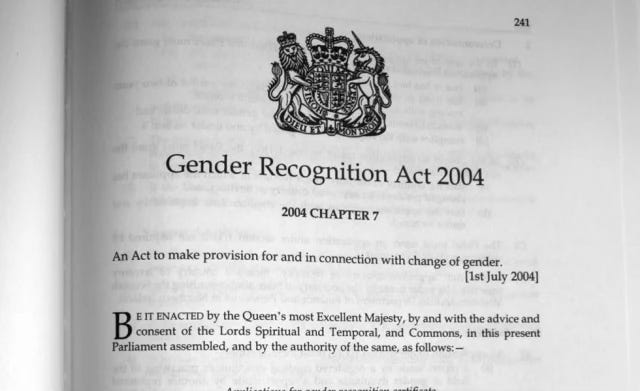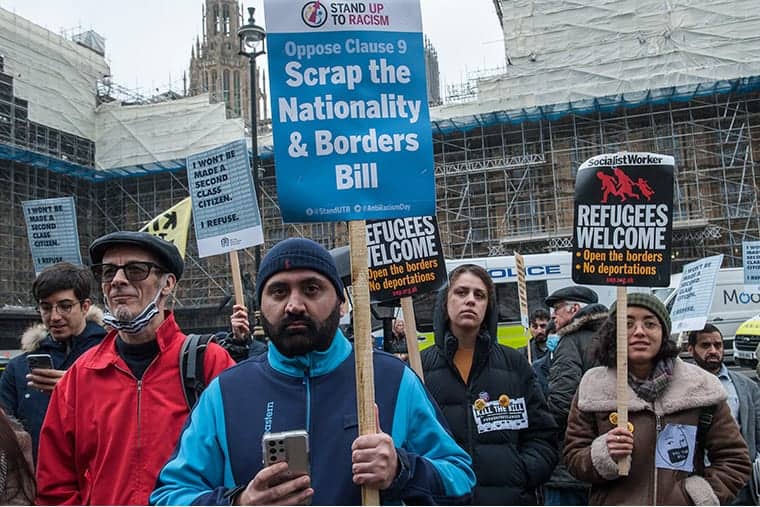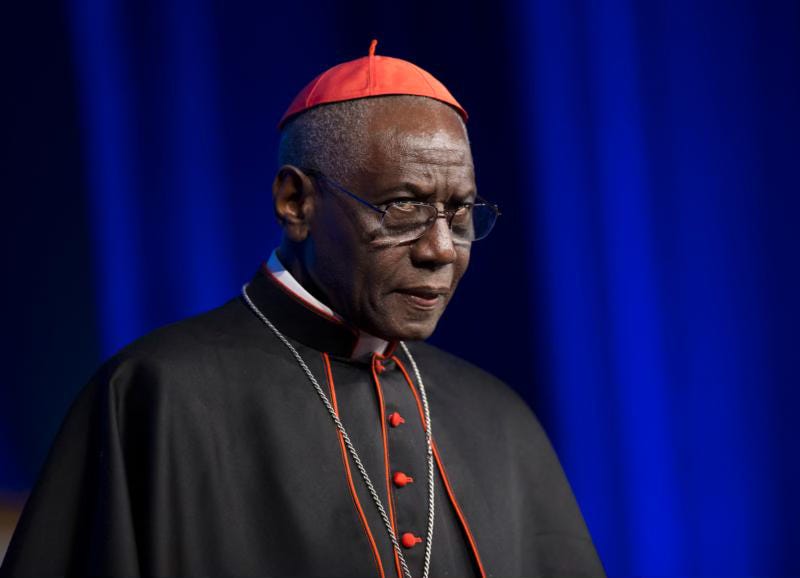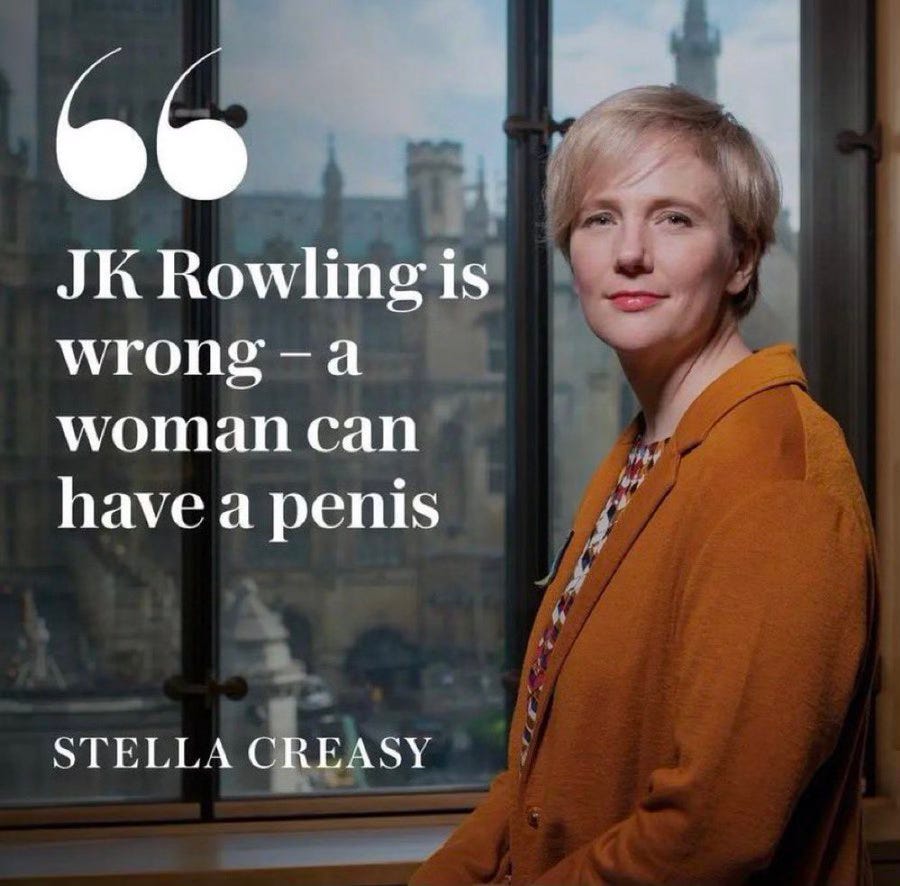David Vance SubstackRead More
What do you make of Italian Prime Minister Giorgia Meloni recent proposed of a novel approach to Ukraine’s security dilemma amid its ongoing conflict with Russia? Speaking on the sidelines of an EU leaders’ summit in Brussels last week, Meloni suggested that Ukraine could be granted NATO-level protection, specifically invoking the collective defense mechanism of Article 5, without formally becoming a member of the alliance.
What? Is she insane? Mamma Mia, Giorgia!
Meloni’s proposal comes at a critical juncture. Ukraine has long sought NATO membership as a bulwark against Russian aggression, a desire intensified since 2022. However, the path to membership has been fraught with obstacles.
The United States, under President Donald Trump, has explicitly rejected Ukraine’s NATO aspirations, with U.S. Defence Secretary Pete Hegseth calling them “unrealistic”
It’s so odd that Meloni goes against the US in this way.
The Trump administration has pushed for a swift resolution to the war, potentially through negotiations that exclude NATO membership as a condition.
Meanwhile, European allies like France and the UK have floated ideas of deploying peacekeeping troops to enforce a ceasefire, a suggestion Meloni has dismissed as less effective and more complex than her alternative.
Putin has made it clear he will not accept the European plan, a pesky details Starmer and Macron overlook.
The core of Meloni’s suggestion is to extend NATO’s Article 5—the utterly insane mutual defence clause, which deems that an attack on one member is an attack on all—to Ukraine without requiring formal accession. She argues this would provide a “stable, lasting, and effective” security guarantee, offering Kiev the protection it seeks while sidestepping the contentious issue of full membership.
Meloni has emphasised that this is distinct from NATO enlargement, stating, “It’s a different thing than entering NATO, but it implies extending the coverage that NATO countries have also to Ukraine.” Her rejection of peacekeeping forces reflects her belief that a more robust, alliance-backed framework is necessary for long-term stability.
This proposal has been met with mixed reactions. Unsurprisingly, Ukraine has welcomed it as a contribution to the broader discussion on its security, with Deputy Prime Minister Olha Stefanishyna calling it “very pragmatic.” Kiev has consistently sought ironclad guarantees, preferably through NATO membership, but Meloni’s idea could serve as a compromise if full accession remains off the table.
The big question is whether NATO allies, particularly the U.S., would agree to extend Article 5 protections without the political and legal framework of membership. It seems to me that this will be rejected by Trump AND Putin.
Meloni’s suggestion reflects her unique position as a leader who has maintained strong support for Ukraine, aligning her with Trump yet diverging from his outright dismissal of NATO involvement. Her proposal could be a diplomatic bridge, appealing to European allies eager to bolster Ukraine while addressing U.S. reluctance.
Yet, its feasibility hinges on unresolved questions: How would such an arrangement be formalised? Would it require unanimous NATO consent? And could it deter Russian aggression without triggering a broader conflict?
Meloni has always been VERY engaged on the Ukraine issue but this is an injudicious suggestion that will not fly. So, why did she suggest it?
Views: 38






